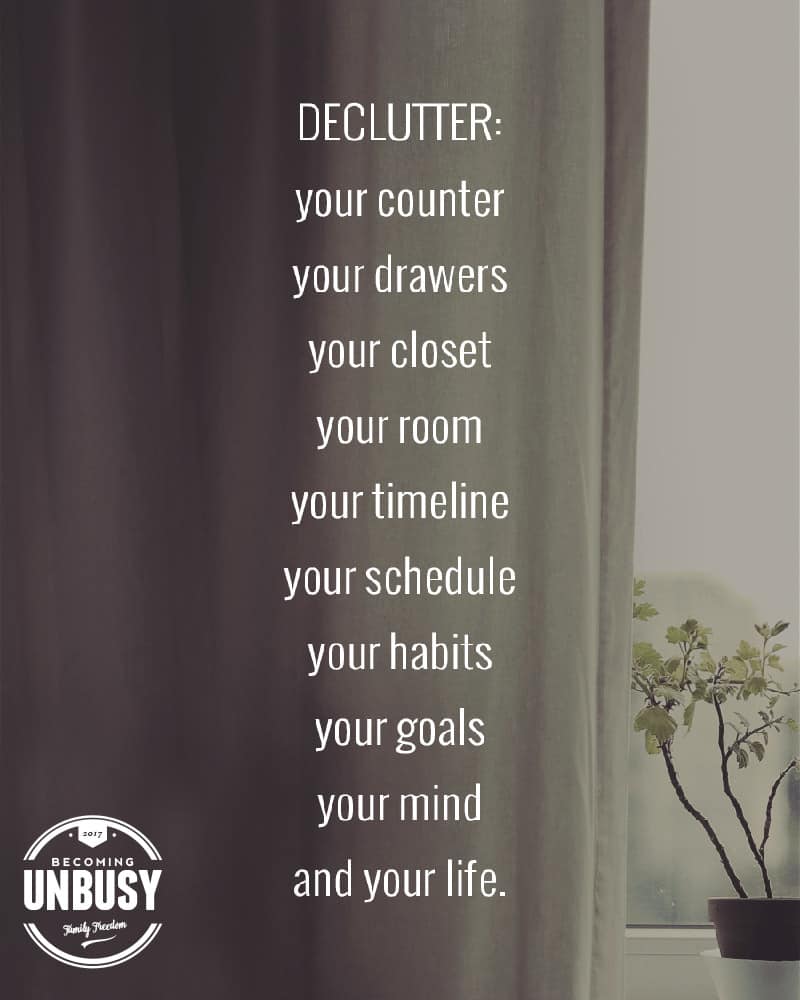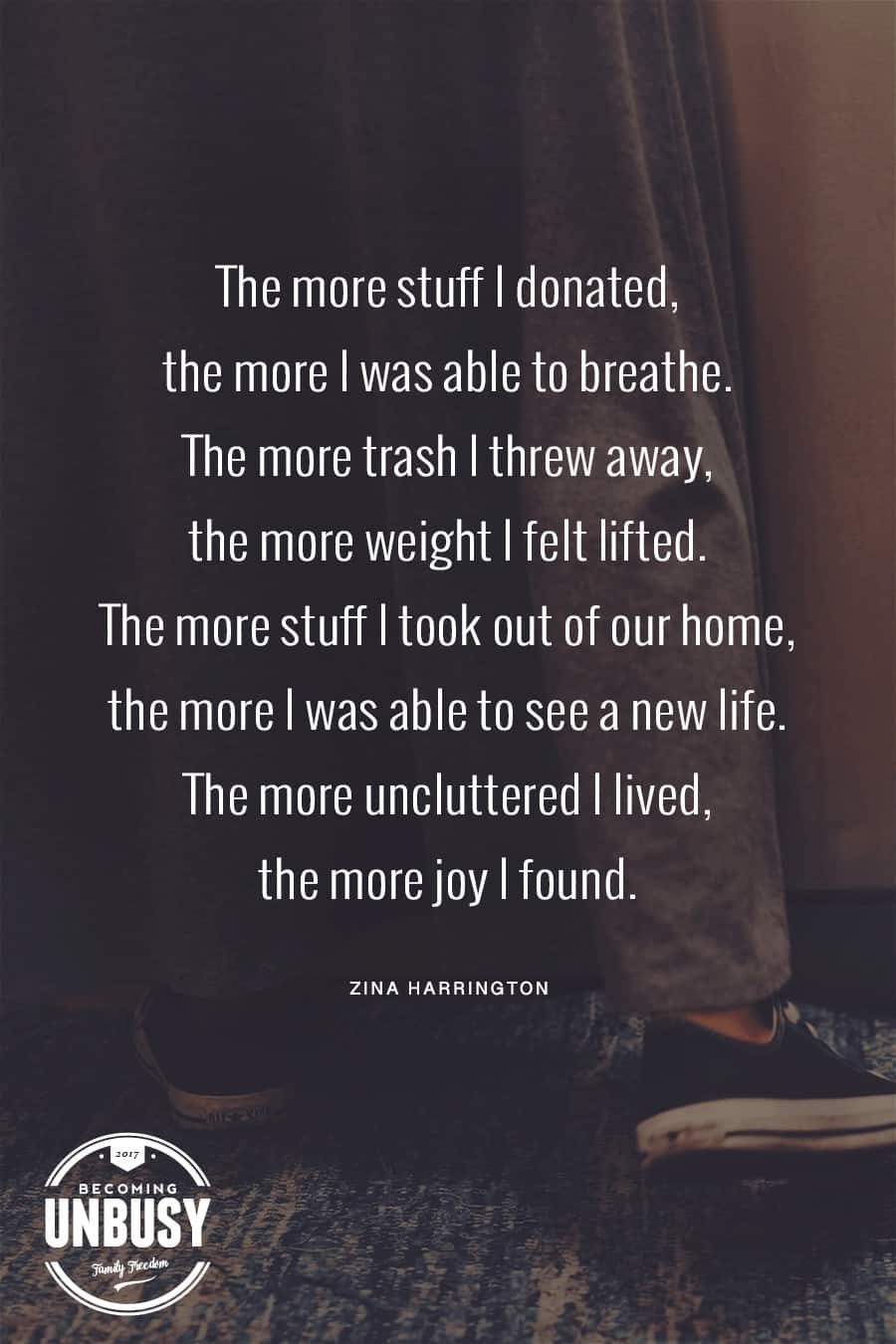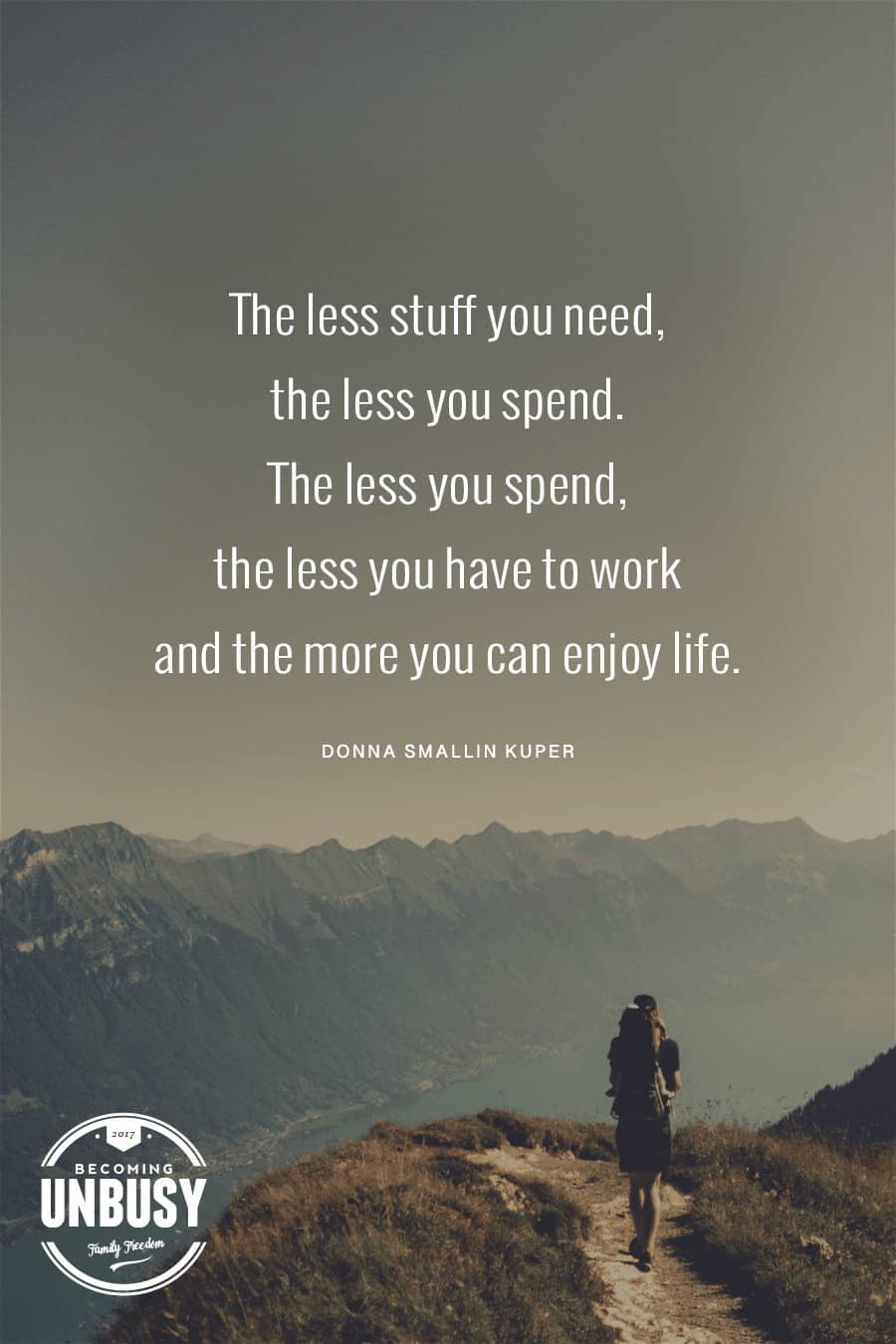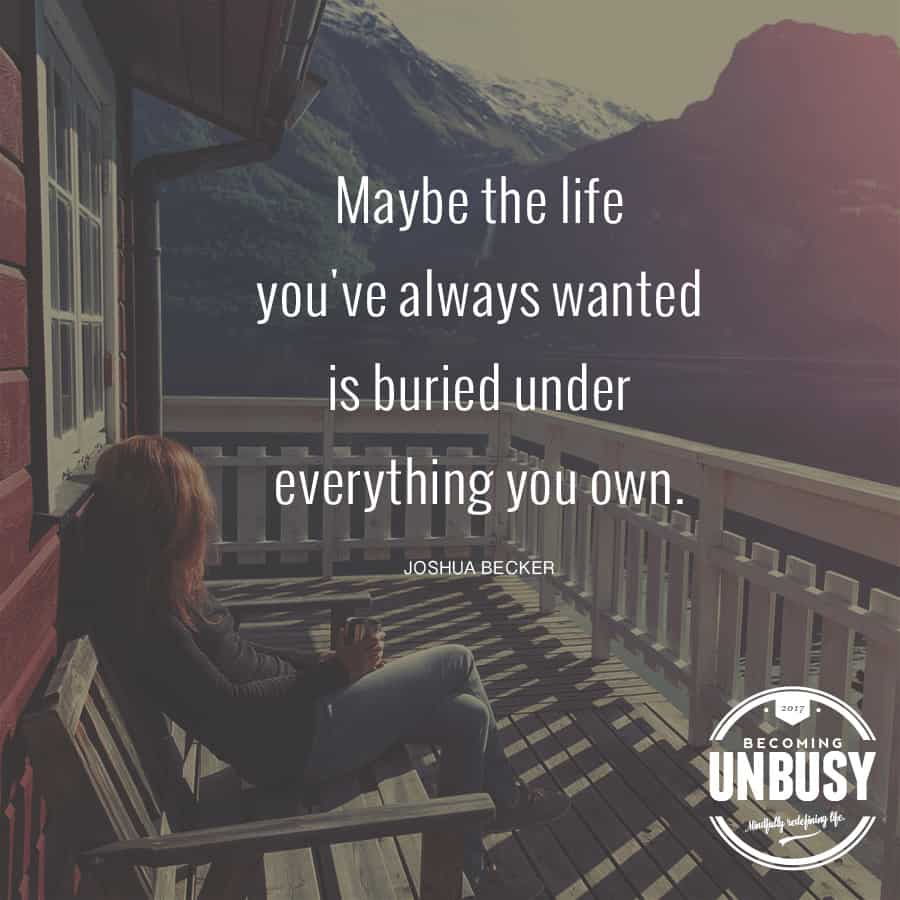Think about the last time that you felt anxious. It might have felt like your chest was tightening, or your hands were a bit clammy, or like a fifty-pound weight had settled down to nest on your shoulders. When we are experiencing anxiety, everything feels harder. We can be overwhelmed by simple tasks, easily frustrated, have trouble sleeping or even feel nauseated.
For many people, myself included clutter triggers anxiety. For me, it's like it quietly builds alongside the piles in my home. I can be fine one minute and then look up and be completely overwhelmed by everything that needs to get done or start getting irritated at my kids or spouse for minor things (because anxiety can sometimes look a lot like anger). When I pause to ask “What can I do to feel better right now?,” it's so often that I just need to take a few moments to get the house back in order. A quick clean-up can magically put my family in a new softer light. What felt overwhelming in the chaos, suddenly feels manageable. The weight lifts.
Sometimes I wish it wasn't this way, but the truth is that my inner peace is partly a reflection of my outer surroundings. Clutter causes stress. And the best way to reduce clutter in our homes is to reduce the amount of stuff in our homes.
If you can relate to that scenario, then it sounds like you are one of the many people for which clutter causes anxiety. And if that’s the case, then you would likely benefit from minimalism.
Joshua Becker defines minimalism as the intentional promotion of the things we most value and the removal of anything that distracts us from it.
3 Ways that Minimalism Reduces Anxiety
Once you realize that "things" are creating havoc on your inner peace, it is (almost) easy to let go of all the stress-inducing clutter. There are a lot of reasons to simplify your life with minimalism, but improving mental health might be the best reason of all. Here’s how minimalism can help reduce anxiety for you.

1. Minimalism Helps You Live Authentically
Anxiety sometimes feels like ambiguous impending doom. When we aren’t clear on the direction of our life or parts of our lives feel misaligned with our truest self, anxiety can be a symptom that tells us something is off. Minimalism helps you bring focus and purpose to your life and brings your physical and mental space in alignment with your values.
As you go through the decluttering process, you are letting go of anything that doesn’t align with who you are right now (more on that next). The result is that your physical space becomes a reflection of your authentic self. As you simplify your schedule to only include commitments you truly want to make room for and your life feels in alignment with your values, anxiety is replaced with peace.

2. Minimalism Gives You Clarity
When beginning a journey toward minimalism, decluttering your home is often the first step. The process of touching each item in a closet or a drawer and mentally making a decision about whether or not you want to make space in your home for it, is an eye-opening process. It makes you confront every purchase you’ve made and it gives you clarity about what you really value and the things that tend to bring you lasting joy.
When we remove the physical clutter from our lives, it often helps us confront other aspects of our lives, too. For example, letting go of your oil paints and canvases to make a real workspace for a sewing machine might bring clarity about the types of hobbies you really care to pursue. Letting go of a past dream or passion can bring you peace about where you are in your life now, and relieve any stress, guilt, or regret from not pursuing something that no longer brings you joy.

3. Minimalism Reduces Financial Stress
Minimalism is a mindset change. It is a mental shift to becoming intentional about what you make space for in your life. When you are clear about what really matters to you, then it becomes easier to say no to everything else. You will find yourself making fewer impulse purchases and spending money only on things that you need or that align with your values.
Minimalism reduces financial stress by helping you align your spending with your values.

Does clutter make you feel anxious? If so, minimalism might be for you.

